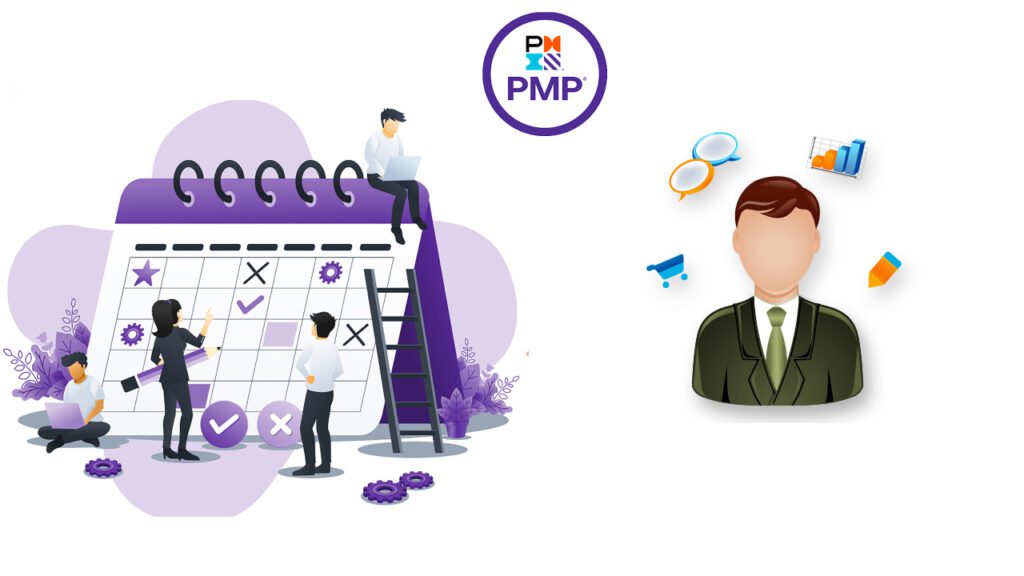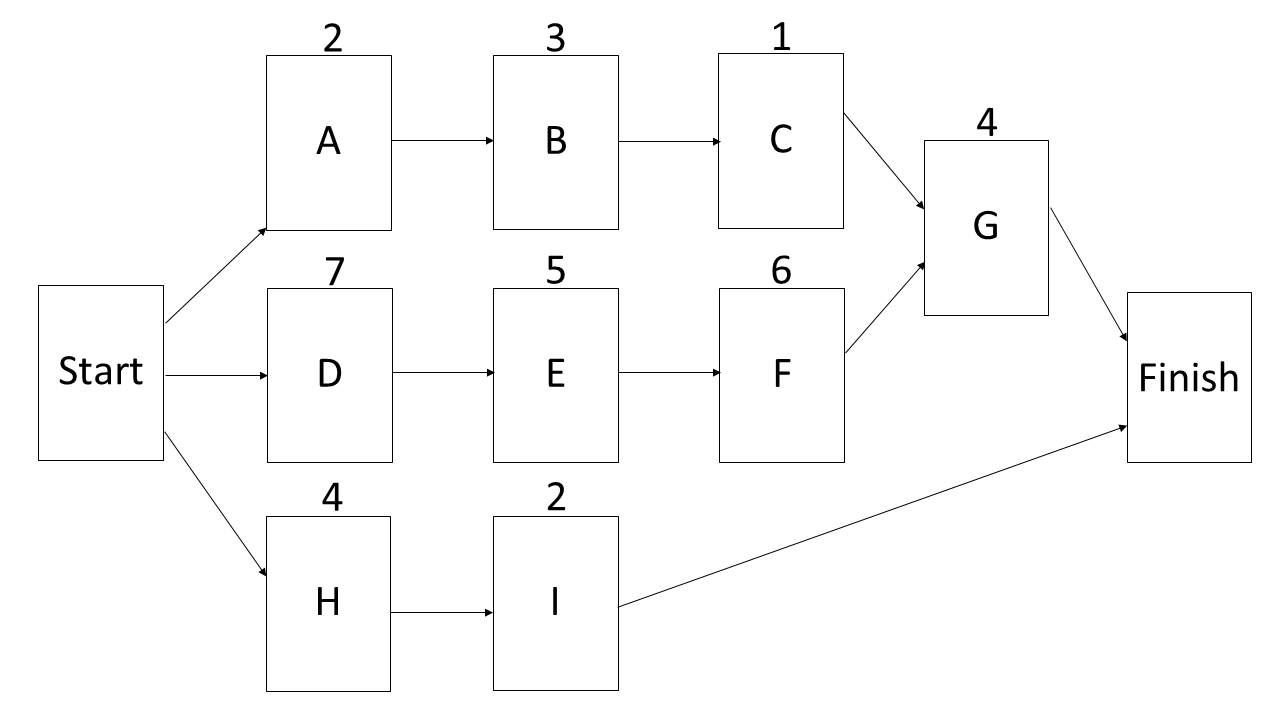
SPECIFIC TECHNIQUE based questions: These are like other question types, you will be provided with information about a specific situation, in different forms like a network diagram or a chart of data for example. They will provide a snapshot of a situation, and ask you to provide an element that’s inherent in that situation. You’ll need to provide the response that relates directly to an element with regard to the situation described, on what specific technique would be used to determine an unknown variable.
SPECIFIC TECHNIQUE based questions example
Sally has a status meeting scheduled with her project’s sponsor. The project sponsor has asked Sally to report on the minimum project duration based on what is known so far. Below is the network diagram of the planned activities in Sally’s project.
Network Diagram for sample PMP Exam Question

Which of the following duration should Sally report to the project sponsor?
- 6 days
- 10 days
- 22 days
- Cannot be determined
Correct Answer: C. 22 days
Explanation: In project management, a critical path is the sequence of activities, which add up to the longest overall duration, regardless if that longest duration has a float or not. In this case, the path Start-D-E-F-G-Finish has the longest duration and is the critical path. Based on what is known so far, it is the minimum project duration. Therefore, Sally should report 22 days to the project sponsor.
Here’s how to study for these:
Go through all the “techniques” so you know them backward and forwards. Once you understand a technique, re-create it with 5 variations on that same technique. In other words, make 5 different questions with 5 different answers on that specific technique. It’s proven that if you know something well enough to teach it, you’ll remember it.
Purchase PMP Practice Exams (720 Questions) from UDEMY: Click Here
PMP Certification: Types of Questions
Refer to the below details for different types of questions you may face in the PMP certification exam.
- FORMULA based questions
- SITUATIONAL based questions
- DEFINITION based questions
- KNOWLEDGE based questions
- INTERPRETATIONAL based questions
- SPECIFIC TECHNIQUE based questions
- PMBOK GUIDE KNOWLEDGE based questions
- ITTO (Inputs, Tools, Techniques & Outputs) based questions
- Professional and Social Responsibility based questions.
- Combination questions

